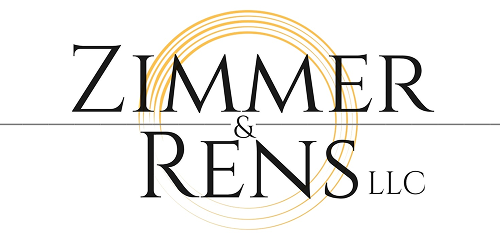Probate
Home / Probate
Understanding probate: A guide from a probate attorney
Probate is the legal process that takes place after someone passes away. It involves validating the will, settling debts, and distributing property to heirs and beneficiaries. While it can be straightforward in some cases, it often raises many legal and emotional challenges for families.
This guide covers:
- What is probate?
- What is probate court?
- Differences between formal vs informal probate
- How an affidavit for transfer works
- What is a probate attorney and what do they do?
- When to contact a:
You’ll also find answers to frequently asked questions and a clear next step if you need a probate attorney free consultation.
For more state and locally specific information, please see our pages on Probate attorney Milwaukee, and Wisconsin probate law.
What is probate?
Probate is the court-supervised legal process of administering a deceased person’s estate. In Wisconsin, probate ensures:
- Validation of the will (if one exists)
- Identifying and valuing assets subject to probate
- Payment of outstanding debts and taxes
- Distributing the remainder funds or assets to heirs or beneficiaries
Typically, probate is handled by the circuit court in the county where the deceased resided.
Probate meaning and definition
- Probate meaning: A legal process that ensures a deceased person’s estate is properly settled
- Probate definition: A judicial procedure that confirms a will’s validity, appoints a personal representative (executor), and oversees estate distribution
If someone dies without a will, the estate is distributed according to state intestacy laws.
What is probate court?
Probate court is a division of the state court system that handles estate matters. The court oversees:- The probate of wills
- Appointment of executors or administrators
- Handling of creditor claims
- Inventorying assets
- Creating a final accounting
- Distribution of estate assets
- Trust disputes and fiduciary issues
Formal vs. informal probate
There are several different options for probate depending on the size and complexity of the estate.Informal probate (Wis. Stat. § 865.01)
Informal probate typically applies when the estate is uncontested and relatively simple.- Typically faster and less expensive
- Minimal court involvement
- Often used when heirs agree and no disputes exist
Informal probate of will
Applies when a valid will exists and no formal hearing is needed.Application for informal probate
The application is filed with the county register.Petition for informal probate
This is simply an alternate phrasing for starting the informal process.How long does informal probate take?
Informal probate typically takes 3 to 6 months, though it must be closed within 12 months unless extended by the court. However, each probate is unique and it is impossible to predict with certainty how long any single probate may take to complete.Formal Probate (Wis. Stat. § 867.01)
Formal probate is required when the will is contested, the heirs are minors, the estate is complex, or questionable documents.- Court hearings may be required
- Judge may review and rule on contested matters
- More documentation and oversight involved
Petition for formal probate
Initiates court-supervised administrationFormal administration
Involves hearings, judicial oversight, and often legal representationFormal vs. informal probate in Wisconsin
|
Feature |
Informal probate |
Formal probate |
|
Court oversight |
Minimal (Register in Probate) |
Significant (Circuit Judge) |
|
Speed |
3–6 months |
6–12+ months |
|
Use case |
Clear, uncontested estates |
Disputes or legal complexity |
|
Hearings |
Rare |
Common |
|
Cost |
Generally low cost & easier to predict |
More costly than informal probate and potentially expensive |
Small estates: avoiding probate
Many states allow simplified asset transfer for small estates. In Wisconsin, the document used is called an affidavit for transfer. Using this form takes the place of the probate process. This process lets heirs claim assets without opening a full probate case, provided certain criteria are met, such as:- The estate value is under a state-specified threshold (e.g., $50,000)
- No real estate is involved (or separate procedures exist)
- A minimum time has passed since death (often 30+ days)
Affidavit of transfer without probate
This process is commonly used for:- Bank accounts
- Vehicles
- Personal items
- Small balances owed to the deceased
What is a probate attorney?
A probate attorney (also referred to as a probate lawyer, probate law attorney, or probate and estate attorney) assists individuals with estate administration and probate proceedings. They work with:- Executors/personal representatives
- Beneficiaries
- Trustees
- Heirs and family members
What a probate lawyer does:
- File court documents to initiate probate
- Guide executors through legal duties
- Handle creditor notices and disputes
- Prepare pleadings
- Direct taxes to be filed by the estate
- Oversee asset transfers
- Represent clients in probate court
Do I need a probate attorney?
You may need a probate attorney if:
- The estate exceeds $50,000 in value
- There is no valid will
- There are disputes among heirs; or
- The estate includes real estate or complex financial holdings
What to expect from a probate attorney
A good probate attorney will:
- Explain your legal duties and obligations
- Prepare and file forms, motions, briefs, and any other required documents with the court
- Ensure deadlines are met
- Represent you in court proceedings as necessary
Who pays probate attorney fees?
Attorney fees are typically paid out of the estate’s assets. The court may require a formal accounting that includes professional expenses, such as attorney fees.
Probate litigation attorney
Legal help when probate disputes arise.
When family members disagree, or fraud, theft or coercion is suspected, the probate process can escalate into a formal legal dispute. A probate litigation lawyer represents clients in cases involving:
- Will contests
- Executor misconduct
- Breach of fiduciary duty
- Mental incapacity or undue influence
- Trust and probate litigation
These cases can be emotionally charged and complex. Let our experienced team of probate litigation attorneys guide you through.
Estate Litigation Attorney
Protecting your rights in disputed estates.
Disputes over inheritance, estate administration, or fiduciary behavior fall under the domain of estate litigation. Whether you’re a beneficiary, executor, or interested party, an estate litigation attorney can protect your rights in:
- Asset disputes
- Exclusion from a will
- Executor challenges
- Breach of duty claims
We also assist in estate litigation mediation and complex, multi-jurisdictional estate cases.
Trust litigation attorney
Handling disputes over trusts and fiduciaries
While trusts are often created to avoid probate, disputes can still arise. A trust litigation attorney helps resolve issues related to:
- Trustee misconduct
- Asset and document disclosures
- Disputed amendments or trust revocations
- Misappropriation of funds
Our trust litigation lawyers offer practical, skilled representation for beneficiaries and fiduciaries in need of support.
Contested will & inheritance dispute attorney
Filing or defending a will challenge.
If you believe a will is invalid, or are defending a valid will from a challenge, our contested will lawyers can help.
We represent clients in will disputes involving:
- Undue influence or coercion
- Lack of mental capacity
- Forgery or fraud
- Multiple, conflicting wills
Time limits for filing a will contest vary by state – often just a few months – so it’s critical to act quickly.
Final Thoughts
Probate can be a smooth legal formality – or a complex, contested process. Every estate is different. If you’re managing or involved in probate, you don’t need to go it alone.
A qualified probate attorney can help you:
- Avoid mistakes and delays
- Navigate court procedures
- Protect your legal and financial interests
- Resolve disputes before they escalate
Frequently asked questions
What does probate mean?
Probate means a legal process where the court oversees the distribution of a deceased person’s estate. It ensures debts are paid and remaining assets go to the correct heirs. While the process can seem overwhelming, it protects the interests of all parties.
What is the difference between formal and informal probate in Wisconsin?
Informal probate is a simpler, quicker process for uncontested estates. Formal probate involves a judge, more court oversight, and is used for complicated or contested cases.
What is an affidavit for transfer without probate?
It’s a legal document allowing heirs to claim personal property (worth under $50,000) without opening a probate case.
Who pays for the probate attorney in Wisconsin?
In most cases, attorney fees are paid from the estate itself – not by individual family members.
Can probate be avoided?
Yes, probate could be avoided by:
- Creating a revocable living trust
- Holding property in joint tenancy with right of survivorship
- Using payable-on-death (POD) or transfer-on-death (TOD) accounts
- Utilizing the small estate affidavit when applicable
Do I need a probate attorney in Wisconsin?
It’s not legally required in most states, but a probate lawyer can help you navigate the process efficiently and avoid legal pitfalls. Formal probate can require the involvement of an attorney depending on the state and county.
How long does probate take in Wisconsin?
Informal probate may take several months; formal, contested probate can last a year or more.
Why would you need a probate attorney?
Even in informal probate, errors in filings or deadlines can delay distribution or create liability. Legal counsel ensures compliance with Wisconsin statutes and that the probate is handed in a responsible and efficient manner.
Do all estates go through probate?
No. Small estates or those with proper planning (e.g., trusts, beneficiaries or POD accounts) may bypass probate.
What happens if there is no will?
The estate is handled under your state’s intestacy laws, which determine the legal heirs.
Ready for trusted legal assistance with probate?
If you’re dealing with probate, don’t face the process alone. Our experienced probate attorneys are here to guide you with clarity, compassion, and confidence.
- Help with formal or informal probate
- Support in will disputes and trust issues
- Transparent fees and responsive service
- Free consultation to review your case and next steps
Let’s make probate less stressful. Contact us today and take the next step with confidence.
Probate attorney free consultation
Our office is located in Brookfield, Wisconsin, but we serve clients all over the state of Wisconsin and beyond.
The initial consultation is free, and we’d be happy to help you with your probate needs.

